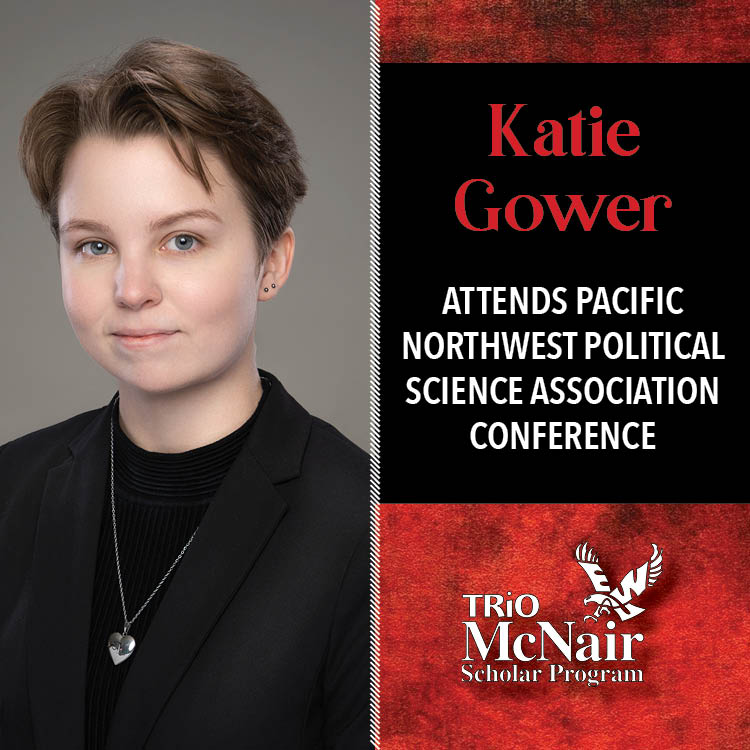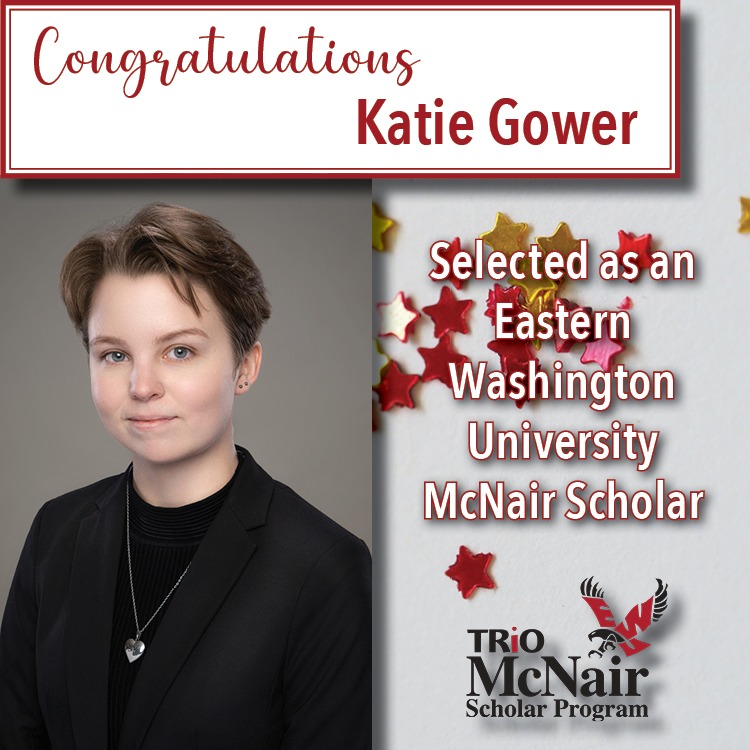Katie Gower

Katie Gower graduated from Eastern Washington University in Fall 2022 with a BA in Political Science with minors in Philosophy and Sociology. Katie is a first-generation, Honors student. Born and raised in Spokane, she graduated from Spokane Falls Community College with a transfer Associate of Arts Degree in 2020. Her research interests range from political theory to domestic public policy concerning climate change, immigration, and homelessness. She has also demonstrated interest and conducted research regarding intersectional feminism and transformative justice. Katie published to Urban Geography Fall 2024, Compassionate revanchism, homelessness, and the divided local state: The case of Spokane, WA.
Her completed research projects include: Neoliberalism and the Decline of Labor Unions in the United States, Alternative Justice Solutions to Gender-Based Violence, and John Stuart Mill and Proportional Representation: How to Ensure Political Equality in a Representative Democracy. Katie’s senior capstone (2022), was titled Framing Matters: Investigating Public Policy Addressing Homelessness in Spokane, Washington. She is interested in local politics and public policy and has completed an extensive research project on Washington state climate change legislation titled An Analysis of Initiative 1631 and the Future of Carbon Fee Legislation in Washington State.
She is using her research to engage in community work tackling housing and homelessness in Spokane and will apply to graduate school in Fall 2023.
2022 EWU Faculty Research Mentor: Dr. Matthew Anderson
Title: Compassionate Revanchism, Homelessness, and the Divided Local State: The Case of Spokane, WA
Abstract: This study deepens our understanding of compassionate revanchism in the spatial management of homelessness in a relatively understudied, midsize city: Spokane, WA. Spokane has observed consistently increasing levels of homelessness in recent years, and has been vastly understudied as a site of homelessness compared to other larger West Coast cities. Spokane’s homelessness policies and practices mirror the contradictory trend of persistent revanchist approaches coupled with increased funding to systems of care (e.g. low-barrier shelters) experienced in other cities. This study investigates the internal workings of the City of Spokane in its efforts to solve its worsening homelessness crisis, and presents a critical discourse analysis of compassionate revanchist in this urban context. Revealed is a sharp internal conflict within the local state in Spokane, especially between the Mayor’s Office and the City Council and other local and regional state agencies. This conflict reflects a sharp divide within homelessness discourse regarding its primary causes and applicable solutions, and demonstrates that local governments are not the homogenous entities that are frequently portrayed in the literature. In the process, compassionate revanchism is revealed to be less an ambivalent or singular policy approach than indicative of a more complicated internal division within local government between starkly opposing narratives and explanations of homelessness.

EWU McNair Scholar Katie Gower Attends Political Science Conference

Katie Gower Selected as an EWU McNair Scholar and Awarded Summer Research Internship


